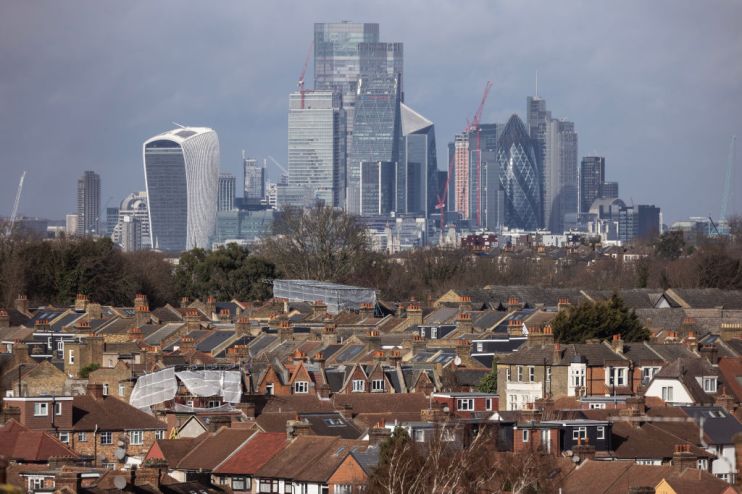Brits yank record £4.8bn from banks after Credit Suisse and SVB failures

Brits yanked a record amount of cash out of banks in March, sparked by concerns over the health of the global financial system following the collapse of Silicon Valley Bank (SVB) and Credit Suisse, official figures out today reveal.
Household deposits at UK banks shrunk £4.8bn in March, the highest monthly fall since the Bank of England started tracking the data in 1997, and a big fall from the £2.6bn increase in February.
The monthly deposit outflow was partially offset by an uptick in cash held at the government-backed National Savings and Investment (NS&I) scheme, taking the net total deposit drop to £1.3bn.
The second largest amount pulled from UK banks’ vaults – £3.1bn – was in October 2008, months after the government nationalised Northern Rock to stem the first bank run in the country for a century and when the country was gripped by the financial crisis.
Jitters over whether British lenders could be ensnared by turmoil in the American banking sector prompted families to pull their cash at banks and place it in safer products.
A jump in money held at the NS&I signals “some households have shifted savings in order to benefit from a full government guarantee too, as opposed to only the £85K protection offered to bank depositors,” Samuel Tombs, chief UK economist at consultancy Pantheon Macroeconomics, said.
Around two months ago, tech-focused US-based lender Silicon Valley Bank suffered a sharp and quick bank run that was driven by customers clocking on to the fact its assets had decreased massively in value due to the US Federal Reserve hiking interest rates aggressively.
It fashioned concern about whether big lenders could withstand greater strain on their balance sheets amid a higher interest rate environment, igniting a run at European lender Credit Suisse.
Credit Suisse was pawned off to its biggest rival UBS in March.
First Republic Bank, another mid-sized US lender, earlier this week was sold to Wall Street titan JP Morgan after it revealed it had hemorrhaged $100bn of deposits in the first three months of this year.
Today’s Bank of England data covers the period before First Republic’s collapse, which was the second largest US bank failure ever.
March’s deposit depletion was not entirely fuelled by anxieties over the UK banking system. Households also shifted cash into savings accounts that offer higher interest rates, which tend to require customers keep their money tied up for months if not years.
“Households and businesses continued [to] take advantage of higher interest rates by shifting their funds from low interest rate-bearing accounts to high ones. Household and business deposits in instant access accounts fell by £18.3bn in March, but that was partly offset by a £12.2bn increase in deposits in higher interest-bearing time deposits and cash ISAs,” Ashley Webb, UK economist at consultancy Capital Economics, said.
Bank of England officials have raised interest rates eleven times in a row to a post-financial crisis high of 4.25 per cent and are expected to lift them again next Thursday probably by 25 basis points.
That has strengthened incentives to save rather than spend, although inflation has been running far above official interest rates, meaning the value of Brits’ savings has been eroding.
Tombs noted high street banks, who have been accused of not passing on the Bank’s rate rises in full, may have to offer better goodies to attract deposits.
“Funding conditions for banks have deteriorated, suggesting that they likely will increase interest rates for both deposits and new loans over the coming months in order to steady the ship,” he said.